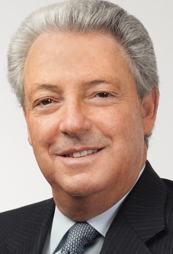Healthcare advertising budgets are back. Interpublic’s CEO Michael Roth tells AdAge “health care is one [area] where we’re seeing strength; it was in a lull for a while as patents were expiring,” a reference to the 2012 patent cliff that continues to buffet the pharmaceutical industry’s annual sales. AdAge notes that Interpublic’s health windfall is surfacing elsewhere, including at PR firm Edelman, where its health-centric work grew 20% for the year ended June 2014.
The United Kingdom’s price watchdog delivered a blow to already hobbled drugmaker Dendreon by rejecting the company’s prostate-cancer drug Provenge over the $76,000 per-patient price. PMLive reports that the agency, known by the shorthand NICE, said the drugmaker failed to show that its drug was better than what the country’s National Health Service already offers. Dendreon filed for bankruptcy protection in November.
The new Congress is set to debate repealing the medical device tax, which the Treasury projected would raise $30 billion in funds by 2023 and which opponents have said will be somewhat offset by job losses and reduced innovation. As noted by the New York Times, a recent analysis by the non-partisan Congressional Research Service found that the projected losses have yet to hit a high mark. The Times says the job fallout has been the equivalent of one one-hundredth to two-tenths of one percent of industry jobs. CRS also said the opposition’s projected job losses ignore just how many items are not taxed, such as exported devices, which comprise 38% of the device industry’s output. Modern Healthcare notes that the medical device tax could serve as an ignition switch of sorts and that its repeal “would likely stoke calls for getting rid of other taxes included in the [Affordable Care Act],” such as a tax on generous employer health plans.
While Pfizer already has a PCSK9 cholesterol-lowering treatment—bococizumab (RN316)—in the works, Reuters reported Wednesday that the drugmaker is also formulating an oral version and vaccine. Mikael Dolsten, the drugmaker’s research and development chief, announced the news at the J.P. Morgan Healthcare Conference in San Francisco this week, saying they hope to begin a trial in humans this year and that animal experiments have shown a “substantial reduction” in cholesterol, according to the news service. Bloomberg’s Drew Armstrong tweeted yesterday that Express Scripts CEO George Paz may pick a price fight with this new generation of cardiovascular drugs.
The @ExpressScripts CEO just said cholesterol drugs like pcsk9 are next price fight they’ll try and force. $regn $amgn #JPM15
— Drew Armstrong (@ArmstrongDrew) January 13, 2015
AstraZeneca touted results from its anti-clotting drug Brilinta Wednesday, saying the drug met its primary efficacy end point of reducing the rate of death, heart attack and stroke. Patients receive drugs, like Brilinta, after suffering a heart attack and take them along with aspirin for a year, after which they switch to aspirin alone, according to Bloomberg. AstraZeneca hopes to prove in this trial—PEGASUS-TIMI 54—that patients taking Brilinta and aspirin for over a year demonstrate reduced incidents of heart problems than those on aspirin alone. AstraZeneca VP Tom Keith-Roach said in a phone interview today, according to the news service, “what Pegasus shows is that you can significantly reduce beyond 12 months the rate of recurrent cardiovascular events by adding Brilinta on top of aspirin.”








